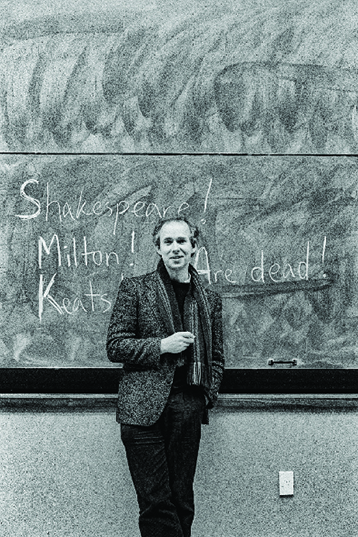This article is taken from PN Review 280, Volume 51 Number 2, November - December 2024.
Songs of Allegiance

Oxford in April 2011 is all daffodils and sunshine. In the window at Blackwell’s, a display of books by the evolutionary biologist and atheist Richard Dawkins celebrates his seventieth birthday. The scientific spirit is now more dominant at Oxford, but two hundred years ago the university was governed by a disposition the poet Thomas Lovell Beddoes would later characterise as an ‘Anglico-theological faculty of insanity’. When Beddoes’s hero Percy Bysshe Shelley co-authored a pamphlet on ‘The Necessity of Atheism’, it was displayed in a bookseller’s bow window on High Street for scarcely twenty minutes before it was spotted by a cleric from New College (where Dawkins is now emeritus fellow), who ‘ordered all copies to be burned at the back of the shop’, and University College expelled the author. This alone would have recommended Shelley to Beddoes, who had made a career of defying authority at school, and affected to care little for academic achievement, still less for religious pieties. Shelley’s reckless pamphleteering throughout the country after his expulsion also set the example for Beddoes’s later political activism in Germany. But he idolised Shelley for his poetry first and foremost.
‘The genius at school is usually a disappointing figure, for as a rule, one must be commonplace to be a successful boy. In that preposterous world, to be remarkable is to be overlooked’, wrote Lytton Strachey in his essay on Beddoes. Tom Beddoes’s schooldays at the Charterhouse came to an end at the ...
The page you have requested is restricted to subscribers only. Please enter your username and password and click on 'Continue':
If you have forgotten your username and password, please enter the email address you used when you joined. Your login details will then be emailed to the address specified.
If you are not a subscriber and would like to enjoy the 293 issues containing over 11,700 poems, articles, reports, interviews and reviews,
why not subscribe to the website today?
